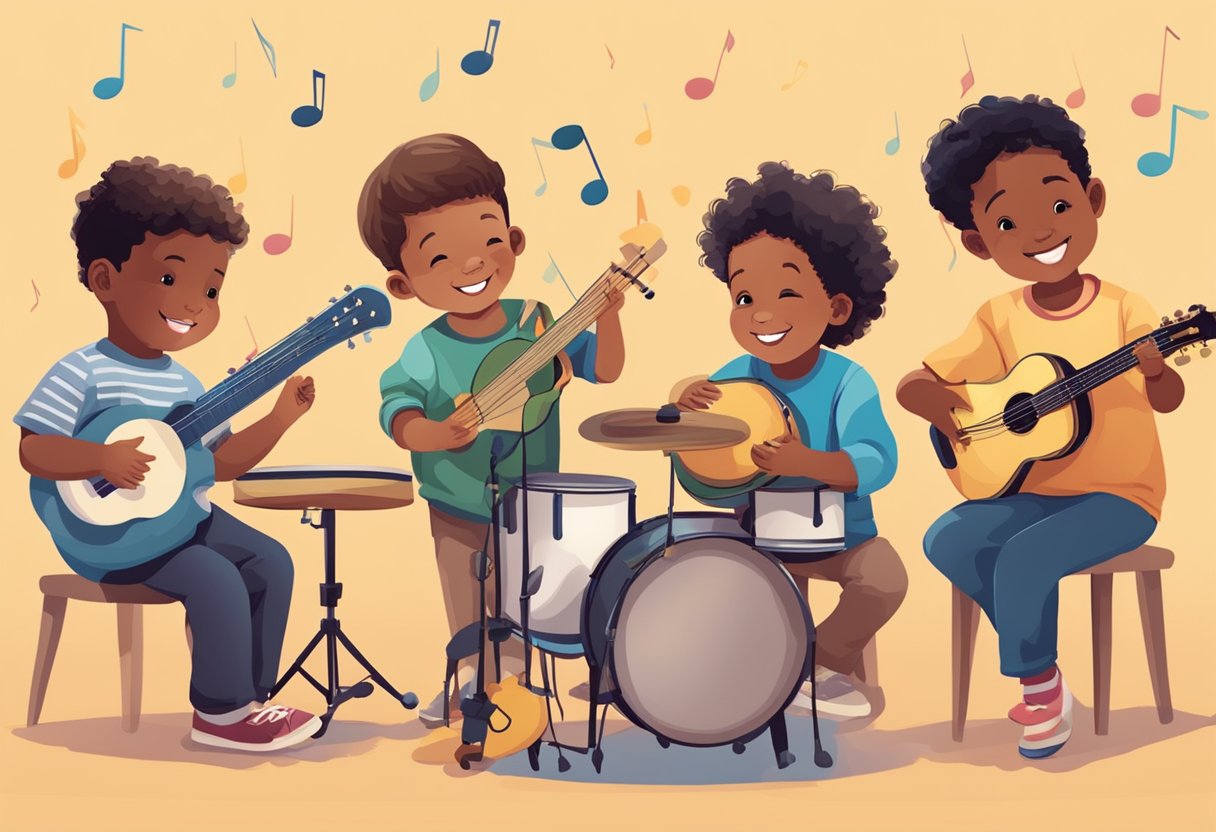Importance of Music for Kids: Cognitive & Emotional Benefits

Music has been an integral part of human culture for centuries. It has the power to move people emotionally and can be used for various purposes, such as entertainment, relaxation, and even therapy. For children, music can play a significant role in their development, both academically and socially. In this article, we will explore the importance of music for kids and how it can benefit them in different ways.
Studies have shown that music can have a positive impact on a child’s cognitive development, which is of great importance in kids. Learning to play an instrument or sing requires concentration, memory, and multitasking, which can improve a child’s overall academic performance. Moreover, exposure to music at a young age can enhance their language and communication skills, as they learn to recognize patterns, rhythms, and tones.
Aside from its academic benefits, music is also of importance in helping kids develop socially and emotionally. Playing music in groups can teach them teamwork, cooperation, and communication, as they learn to listen and respond to others. It can also provide a creative outlet for self-expression and boost their self-esteem. Overall, music can be a powerful tool in shaping a child’s character and preparing them for success in various aspects of life.
Cognitive Development
Music has been shown to have a positive impact on the cognitive development of children. In this section, we will discuss two specific areas of cognitive development that are enhanced by exposure to music: Memory Enhancement and Improved Attention Span.
Memory Enhancement
Research has shown that music can help improve children’s memory skills. Listening to music can stimulate the brain and enhance the ability to remember information. Moreover, learning to play an instrument requires memorization of notes and rhythms, which can improve memory skills even further.
Improved Attention Span
Music has also been found to improve children’s attention span. Listening to music can help children focus on a task for a longer period. Additionally, learning to play an instrument requires sustained attention and concentration, which can translate to other areas of life, such as schoolwork and homework.
In conclusion, exposure to music can positively impact children’s cognitive development. It can enhance memory skills and improve attention span, which can lead to success in other areas of life.
Emotional Growth
Music has the power to evoke emotions and help children learn to express themselves in healthy ways. This emotional growth can have a positive impact on their overall well-being.
Expression of Feelings
Music provides children with a safe and creative outlet to express their feelings. They can use music to communicate their emotions in a way they may not be able to through words alone. For instance, a child who is feeling sad may find solace in listening to a melancholic song and may even feel better after singing along to it.
Mood Regulation
Music can also help regulate a child’s mood. Listening to upbeat and energetic music can help boost their energy levels and improve their mood. On the other hand, listening to calming and soothing music can help them relax and unwind after a long day. Learning to regulate their emotions through music can help children develop healthy coping mechanisms that they can use throughout their lives.
In conclusion, music plays a crucial role in a child’s emotional growth. It provides them with a creative outlet to express their feelings and helps them regulate their mood. By incorporating music into a child’s daily routine, parents and caregivers can help promote their emotional well-being.
Social Skills
Music can play an important role in developing social skills in children. Here are two ways in which musical activities can help children build social skills.
Teamwork Through Musical Activities
Playing music in a group requires teamwork and cooperation. Children must learn to listen to each other, communicate effectively, and work together to create a cohesive sound. By participating in musical activities, children can learn to share ideas, compromise, and support each other. These skills can be transferred to other areas of their lives, such as school projects and sports teams.
Cultural Awareness
Music can expose children to different cultures and traditions. By learning about different styles of music and the history behind them, children can develop an appreciation for diversity and cultural awareness. This can help them to be more open-minded and accepting of others.
Overall, music can be a fun and engaging way for children to develop their social skills and learn about the world around them.
Physical Coordination
Music has a significant impact on a child’s physical coordination. It helps in developing fine motor skills and improves their rhythm and movement.
Fine Motor Skills
Playing musical instruments requires the use of fine motor skills, which involve the movement of small muscles in the hands and fingers. Playing instruments such as the piano, guitar, or violin can improve a child’s hand-eye coordination and finger dexterity. These skills are also essential for everyday tasks such as writing, typing, and using utensils.
Rhythm and Movement
Music is all about rhythm, and children can learn to move and dance to the beat. Dancing to music can improve a child’s balance, coordination, and spatial awareness. It also helps them develop a sense of timing and rhythm, which can be useful in various activities such as sports and games.
In conclusion, music plays a crucial role in a child’s physical development, helping them develop fine motor skills and improving their rhythm and movement. Parents and educators should encourage children to explore music and provide opportunities for them to learn and play musical instruments.

